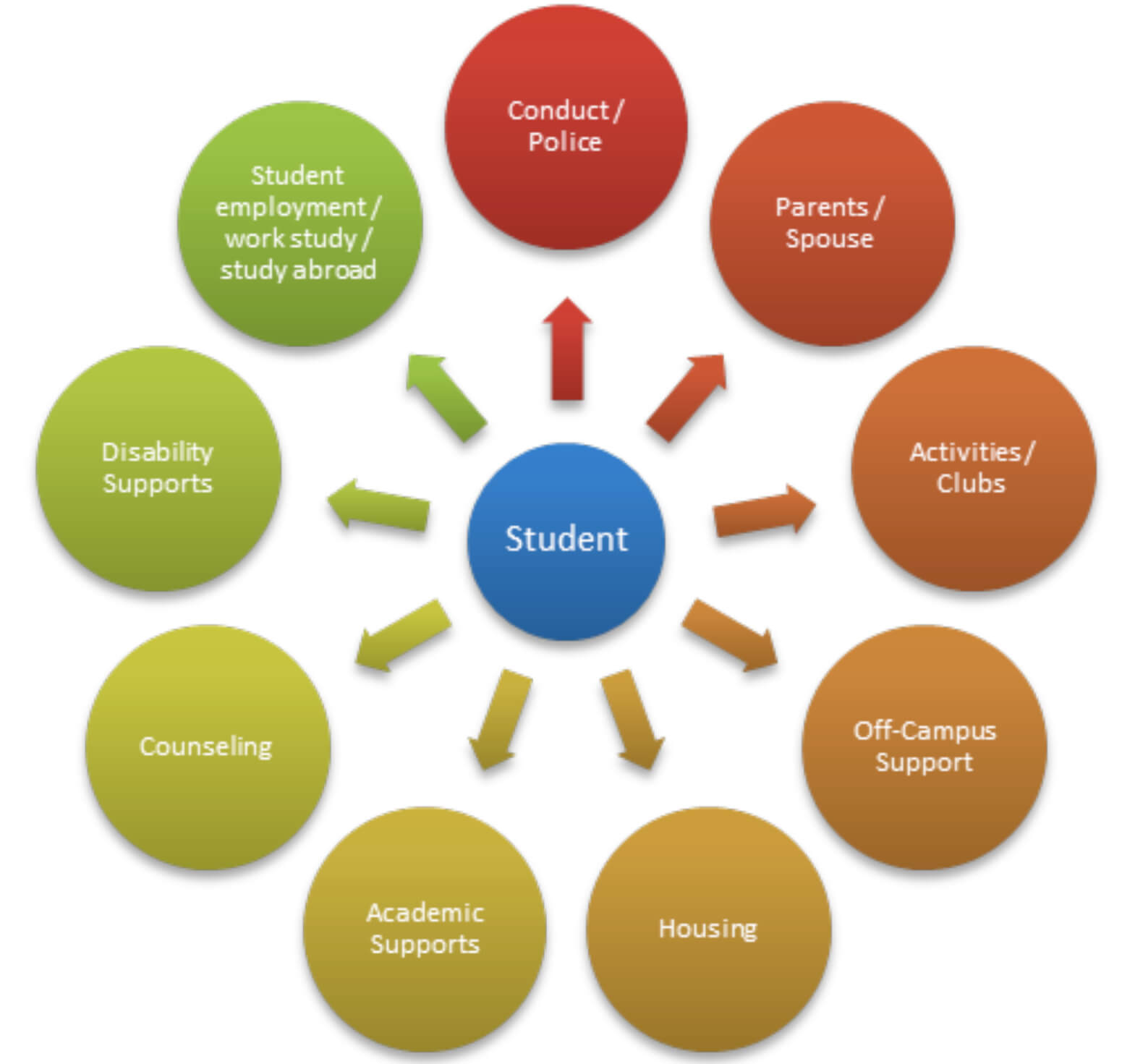Case Management Model
What is a case management approach?
Case management services are a key part of the continuum of mental health services and supports for individuals with mental health concerns. A case management approach to assisting students with a variety of needs through the coordination of appropriate on and off campus services and the provision of constant and on-going support[1]. Research has shown that successful case management and community health care models contribute to positive health outcomes, reinforcing the importance of services that help link students to available resources.
Who uses case management?
Case management can help a wide range of students. Some examples include: a first-year student struggling academically who may need support identifying and utilizing existing support services on campus (i.e. tutoring, writing lab, etc.), students with significant mental illness that compromises their quality of life, students that need access to medication, students who would benefit from concurrent support from several on-campus and off-campus services.
Imagine how a case manager could help in these common situations (from VanBrunt, et al (2012) NaBITA Whitepaper):
- Darla struggles with recurrent thoughts of suicide and depression. She has little family support and also has some learning disability concerns that keep her from performing well in the classroom. She recently came to the attention of your campus behaviour implementation team (BIT) upon her return to campus following an off campus evaluation for a suicide attempt.
- Thomas recently committed his second serious alcohol violation and has come to the attention of the BIT. His substance use seems to be out of his control and despite his strong academic performance; he is putting his academics at risk with his problem drinking.
- Carter is having trouble adjusting to college life. He is socially isolated, has difficulty keeping track of his class assignments and says “I want to study, but I just don ‘t know how. This is so different from high school.” By the third week of the semester, Carter is frustrated and considering dropping out. A professor shares his name with the campus BIT.
Each of these cases outlines common scenarios in which a case manager could help by connecting the student to other departments and assisting them in setting and researching their academic, social and career goals.
Below is a graphic that illustrates a wide range of departments and services to which case managers can connect students during or after a time of crisis, intervention, prevention or follow-up. This graphic is not all inclusive as there are other departments or services that they may interact with as well.
[1] Government on Ontario (2005). Intensive Case Management Service Standards for Mental Health Services & Supports. Accessed from:
http://www.ontla.on.ca/library/repository/mon/10000/252444.pdf
What models exist on Ontario campuses?
Several models of case management can be found on Ontario campuses. Specifically, Centennial and Georgian Colleges have both adopted case management models on their campuses. Click the links below to learn more about each of these models.
Case studies
Benefits & Challenges
Benefits:
- Case management can reduce hospitalization
- Cost Savings: case management models have lower direct and indirect costs, often associated with savings as a result of reduced hospital use
- High rates of student and family satisfaction
- Increased use of community services in models that emphasize linkage with other community services
Challenges:
- Despite widespread implementation of case management models there are no standard case management methods or definitions
- A 2009 CAMH client study found that the top three challenges clients reported in working with their case managers included:
- It was difficult to form a trusting relationship
- The case manager was often not available in emergencies
- The case manager was not as available as the client would have liked.
Learn more
- Government on Ontario (2005). Intensive Case Management Service Standards for Mental Health Services & Supports.
- VanBrunt, B., Woodley, E., Gunn, J., Raleigh, MJ, Reinach Wolf, C.& Sokolow, B. (2012). Case Management in Higher Education. Publication of the National Behavioral Intervention Team Association (NaBITA) and the American College Counseling Association (ACCA).


